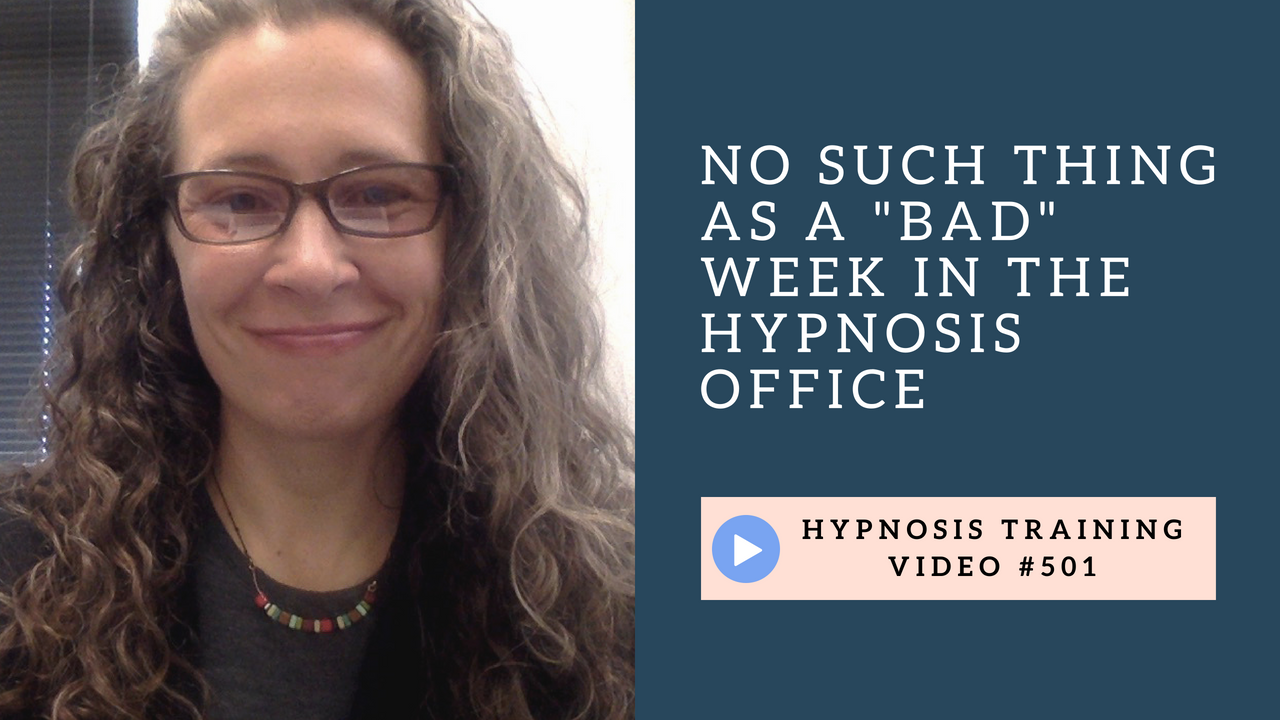Hypnosis Training Video #555: You As A Hypnosis Professional Can Absolutely Clear Shame from Your Client’s Lives
“Shame is the lie someone told you about yourself.” - Anaïs Nin

You are LOVED. You BELONG. You MATTER. We have all been made to feel shame in our lives - learn how to get rid of it for yourself, then your clients.
Hypnotists and aspiring hypnotists - I love helping clients with shame!! Please don’t shy away from this complex and challenging feeling. It is where we can shine the light and bring our clients the most amazing relief - for shame lives in the body and causes so much destruction for decades until it is released.
What is Shame?
Shame is a complex feeling - which means it’s a combination of more than one feeling including fear, anger, or guilt.
When a client says they feel ashamed, we don’t know what they mean until we ask them to describe the feeling to us so we know what the components of that shame is for that client. Don’t assume you know what shame means, we have to ask them what’s “under” the shame - the response can include other complex feelings (like confusion or conflicted), and it can include basic feelings too such as fear, anger, and guilt.
Shame shows up in different combinations of these feelings for every experience, and as hypnotists, we have the powerful ability to help our clients clear this shame from our client’s lives, and transmute those past, problematic patterns into productive, encouraging habits for a happy future.
Understanding Shame
“Shame is the lie someone told you about yourself,” said Anaïs Nin. No matter what a client comes in for, if shame is present at all, that becomes my immediate first priority. Shame is immensely destructive. Many of our deepest wounds and pains are generated from shame, so I ALWAYS stop to address it if it comes up with a client.
Shame is created when we feel we haven’t met someone else’s or our own expectations. If it’s our own expectations - the expectations are often based on limiting beliefs about ourselves or the world around us. Whether it is a parent being disappointed in you, a teacher grading you harshly, a mentor critiquing your character, or yourself feeling shame for not reaching a goal you had set, it all comes down to the expectation.
By getting to the root of the expectation our client feels shame around, we will find that there was an event in their past where they first felt afraid, angry, or guilty before they felt shame. Afraid they wouldn’t pass their math test. Angry that they didn’t get first place in the marathon. Guilty that they didn’t follow in their parent’s footsteps. It includes a sense of not belonging, or exclusion. Each example is based in a firm expectation of the outcome, and we automatically feel a sense of failure and shame once our reality appears to not fit the set expectations.
Here’s a quick story to demonstrate another cause of shame, this comes from Brené Brown:
A young boy is excited about his homework grade, and races home to tell his mother the good news that he got an A on the difficult math exam. He’s expecting praise and love from his mother.
When he gets home, he runs into the living room shouting “Mom, mom! check out how well I did on my math test!!!” and to his surprise, his mother is in the living room with a bunch of other people. Instead of praising him, she scolds him and says “Go to your room! How dare you interrupt me during a time I’m spending with my friends!”
This is likely to cause shame in this little boy - because he expected to be praised. His nervous system was expecting the feel-good response. Instead, he was scolded and embarrassed, and the difference between what he actually felt, and what he was expecting - causes shame.
Take a moment right now to think about a time in your life when you felt ashamed - what caused it? What were the circumstances? Can you love that part of you ? We always want to be able to do our own inner work on ourselves, and clearing out shame in yourself and understanding the process and healing that comes from that is an important part of every professional hypnotist’s job.
How Do We Help Transform Shame?
As professional hypnotists, we aren’t doing the work FOR our client, but rather empowering them to be able to feel they own the process of transformation. A lot of other professions don’t understand this, and it gives us, as hypnotists, the opportunity to help when nothing else has. Since the client owns the power of their transformation, it dominoes into other areas of their life, creating a chain reaction of positivity. We don’t get rid of feelings - we transform them to better feelings. It’s alchemy of the heart and mind.

Emotions always begin with a thought - something happens, you give it a meaning, and then you feel a certain way. Through hypnosis we do age regression work to identify what thoughts are preceding the feelings, and adjust erroneous beliefs.
In age regression we are always doing two basic things:
Validating what is true. For example, your client may have failed an exam. Yes that is true. You did fail the exam because you didn’t study and you went out with your friends instead.
Removing erroneous beliefs and feelings. Erroneous beliefs are also called limiting beliefs. In the above example, a client may have thought, since they failed the exam “I am a bad person”, or “I’m not good enough”, or even “I don’t belong to be here”. Through the power of Age Regression, we can help our client get rid of the erroneous beliefs. In this case, your client - who now may be 45 years old, can understand the behaviors of their younger, 14 year old self and realize, yes it wasn’t my smartest move to blow of studying for that exam, but it does NOT make me a bad person ; and the shame immediately dissipates. The resiliency of the human mind proves itself to once again bring our clients relief when they are faced with the truth of the situation - which is what excellent hypnosis and age regression offer our clients - the truth. Not the parents truth, or society’s truth - but our clients own truth. Hypnosis is a return to yourself.
Another way to think about shame, is that reality is “I did something bad” (behavioral), shame says “I am bad”, which is at the identity level. We can easily shift our clients self-perception from I am bad to I made a mistake, and am still a good person who can grow and learn from this experience. On the other side is compassion, and wisdom.
Watch the Full Video Below for More Insight



-3.png)
